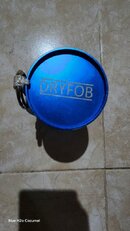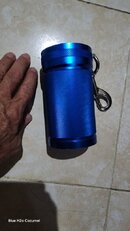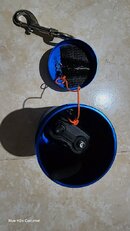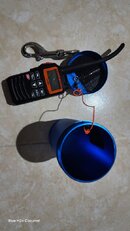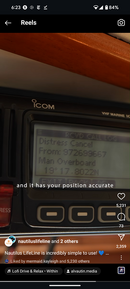I had a chat with a regular Coz diver recently who told me most of the boats don't monitor the channels the Nautilus Lifeline broadcasts distress signals on.
Can anyone confirm or deny?
Is this thing worth carrying or would a Garmin InReach/PLB be a better choice for Cozumel?
Thanks in advance!
This question shows that OP's regular coz diver friend doesn't understand how a Nautilus radio works. As another user pointed out, there's no channel to monitor. The Nautilus sends out alerts over VHF radio using two simultaneous protocols: DSC and AIS. When a DSC alert goes out, all VHF radios in range automatically switch to channel 16, sound an alarm, and display information on the radio's little screen. The alarm is loud, annoying, and impossible to ignore.
The DSC alert sent from a Nautilus device sends the following info to nearby radios:
- MMSI for the Nautilus radio (not particularly useful for rescue purposes, just how it works, like Caller ID for marine radios)
- Alert type: man overboard
- GPS coordinates of the Nautilus device
Nearby boats can initiate a rescue attempt or radio appropriate authorities. Usually both at the same time. The responding boat needs a GPS unit so they can navigate to the coordinates they received over the radio. Any cheapo GPS unit will do including most modern smart phones.
While I'm talking about what data the alerts convey, I might as well talk about AIS. It is true this is only common on larger, often commercial, vessels. It does the same alarm and relays generally the same info as the DSC alert. The biggest difference is AIS alerts are plotted on a screen/map as opposed to just the raw coordinates a DSC alert provides.
I don't have a problem with the product, I have a problem with the advertising:
Copied directly from their website:
"Works everywhere on the planet with all marine radios installed since June 1999 on ships, yachts, fishing boats, tugs and every other boat on the water"
I don't mind product limitations, I do mind being sold a false sense of security with misleading advertising.
That statement is true. It isn't misleading. Any ship with a radio installed in the past 25 years is going to have DSC capabilities. Unfortunately not all ships operating on the water have had a new radio installed since 1999 like the LOB
@tursiops went on in the Marshall Islands.
The Nautilus is not a bad device. In fact it is an incredible device. If a boat loses a diver, it is very very likely the dive boat is within range of the Nautilus. In the rare case the diver has ended up more than 5 miles away from their boat, odds are good there's another boat in range that will receive the alert.
Is it possible no boat will be within 5 miles? Yes.
If you are diving in a remote area, a PLB might make more sense, but keep in mind that a rescue via PLB is going to be much slower than being picked up by your dive boat that is just over the horizon.
PS: I'm including a photo of a DSC equipped radio receiving a man overboard alert (not specifically from a Nautilus device). I snagged the still from a Nautilus informational video.



